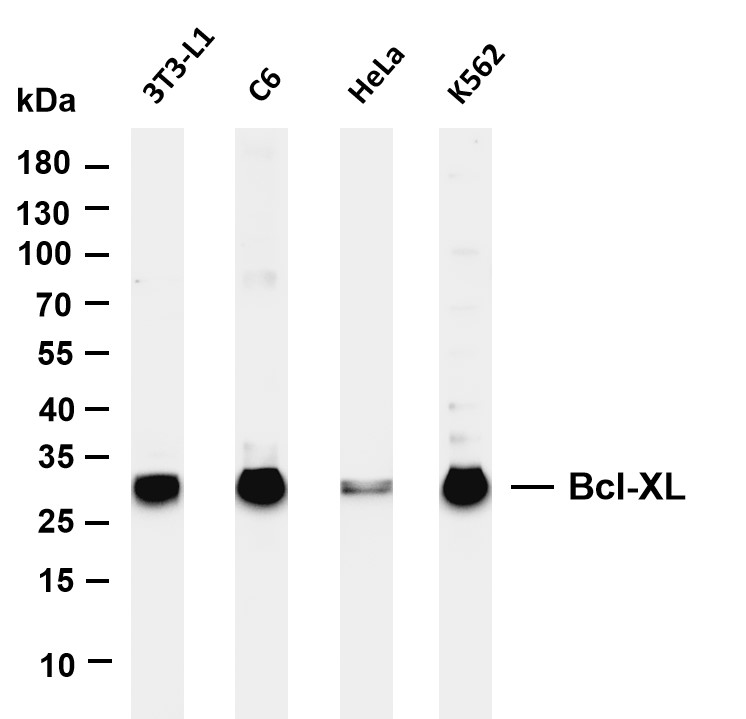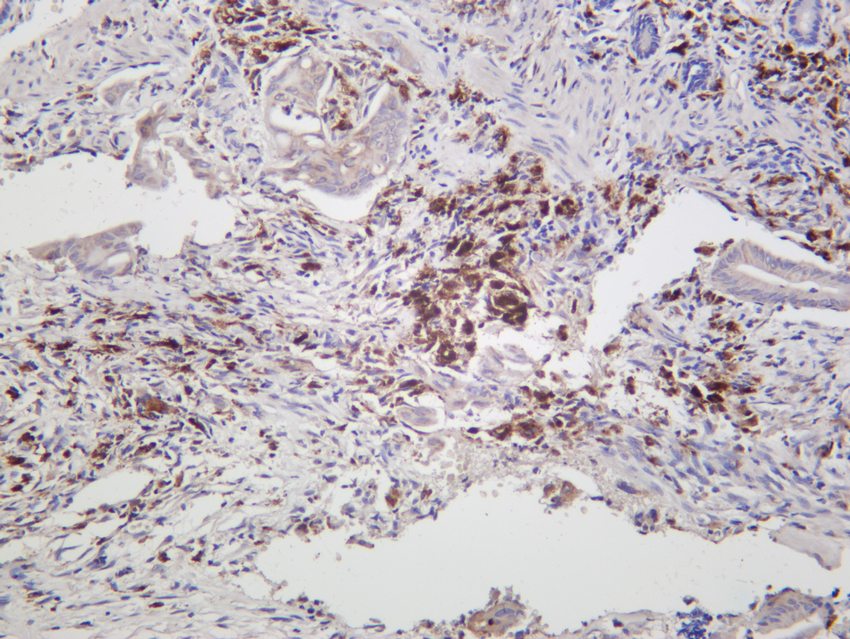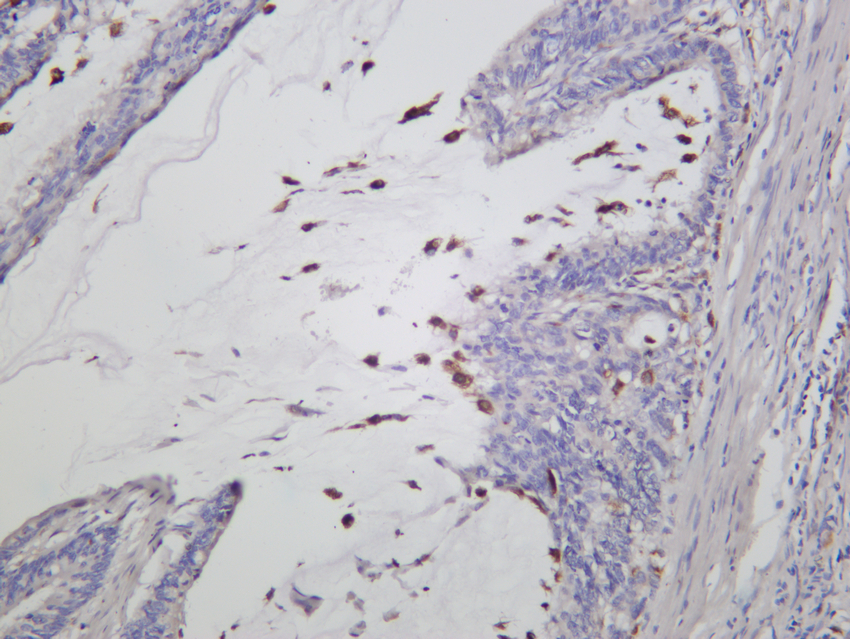Bcl-XL (PT0244R) PT® Rabbit mAb
- Catalog No.:YM8153
- Applications:WB;IHC;IF;IP;ELISA
- Reactivity:Human; Mouse; Rat;
- Target:
- Bcl-x
- Fields:
- >>EGFR tyrosine kinase inhibitor resistance;>>Platinum drug resistance;>>Ras signaling pathway;>>NF-kappa B signaling pathway;>>p53 signaling pathway;>>Mitophagy - animal;>>Autophagy - animal;>>PI3K-Akt signaling pathway;>>Apoptosis;>>Apoptosis - multiple species;>>NOD-like receptor signaling pathway;>>JAK-STAT signaling pathway;>>Parkinson disease;>>Amyotrophic lateral sclerosis;>>Pathways of neurodegeneration - multiple diseases;>>Shigellosis;>>Toxoplasmosis;>>Measles;>>Human T-cell leukemia virus 1 infection;>>Herpes simplex virus 1 infection;>>Human immunodeficiency virus 1 infection;>>Pathways in cancer;>>Transcriptional misregulation in cancer;>>Pancreatic cancer;>>Chronic myeloid leukemia;>>Small cell lung cancer;>>Hepatocellular carcinoma;>>Lipid and atherosclerosis
- Gene Name:
- BCL2L1
- Protein Name:
- Bcl-2-like protein 1
- Human Gene Id:
- 598
- Human Swiss Prot No:
- Q07817
- Mouse Gene Id:
- 12048
- Mouse Swiss Prot No:
- Q64373
- Rat Gene Id:
- 24888
- Rat Swiss Prot No:
- P53563
- Specificity:
- endogenous
- Formulation:
- PBS, 50% glycerol, 0.05% Proclin 300, 0.05%BSA
- Source:
- Monoclonal, rabbit, IgG, Kappa
- Dilution:
- IHC 1:200-1:1000,WB 1:1000-1:5000,IF 1:200-1:1000,ELISA 1:5000-1:20000,IP 1:50-1:200,
- Purification:
- Protein A
- Storage Stability:
- -15°C to -25°C/1 year(Do not lower than -25°C)
- Other Name:
- BCL2L1;BCL2L;BCLX;Bcl-2-like protein 1;Bcl2-L-1;Apoptosis regulator Bcl-X
- Molecular Weight(Da):
- 26kD
- Observed Band(KD):
- 30kD
- Background:
- The protein encoded by this gene belongs to the BCL-2 protein family. BCL-2 family members form hetero- or homodimers and act as anti- or pro-apoptotic regulators that are involved in a wide variety of cellular activities. The proteins encoded by this gene are located at the outer mitochondrial membrane, and have been shown to regulate outer mitochondrial membrane channel (VDAC) opening. VDAC regulates mitochondrial membrane potential, and thus controls the production of reactive oxygen species and release of cytochrome C by mitochondria, both of which are the potent inducers of cell apoptosis. Alternative splicing results in multiple transcript variants encoding two different isoforms. The longer isoform acts as an apoptotic inhibitor and the shorter isoform acts as an apoptotic activator. [provided by RefSeq, Dec 2015],
- Function:
- domain:The BH4 motif is required for anti-apoptotic activity. The BH1 and BH2 motifs are required for both heterodimerization with other Bcl-2 family members and for repression of cell death.,function:Potent inhibitor of cell death. Isoform Bcl-X(L) anti-apoptotic activity is inhibited by association with SIVA isoform 1. Inhibits activation of caspases (By similarity). Appears to regulate cell death by blocking the voltage-dependent anion channnel (VDAC) by binding to it and preventing the release of the caspase activator, cytochrome c, from the mitochondrial membrane. The Bcl-X(S) isoform promotes apoptosis.,PTM:Proteolytically cleaved by caspases during apoptosis. The cleaved protein, lacking the BH4 motif, has pro-apoptotic activity.,similarity:Belongs to the Bcl-2 family.,subcellular location:Mitochondrial membranes and perinuclear envelope.,subunit:Bcl-X(L) forms homodimers, and het
- Subcellular Location:
- Cytoplasm
- Expression:
- Bcl-X(S) is expressed at high levels in cells that undergo a high rate of turnover, such as developing lymphocytes. In contrast, Bcl-X(L) is found in tissues containing long-lived postmitotic cells, such as adult brain.
The role of insulin-like growth factor 1 in ALS cell and mouse models: A mitochondrial protector. BRAIN RESEARCH BULLETIN Brain Res Bull. 2019 Jan;144:1 WB Mouse 1:400 spinal cord
Cancer Stem Cells are Regulated by STAT3 Signalling in Wilms Tumour. Journal of Cancer J Cancer. 2018; 9(8): 1486–1499 WB Human,Mouse 1:1000 G401-Xenografts G401 cell
The Antitumor Effect of Suicide Gene Therapy Using Bifidobacterium infantis–mediated Herpes Simplex Virus Thymidine Kinase/Ganciclovir in a Nude Mice Model of Renal Cell Carcinoma. UROLOGY 2014 Aug 12 WB Mouse 786-O cell-Xenograft
Tang, Qiusha, et al. "Combination of PEI-Mn0. 5Zn0. 5Fe2O4 nanoparticles and pHsp 70-HSV-TK/GCV with magnet-induced heating for treatment of hepatoma." International journal of nanomedicine 10 (2015): 7129.
- June 19-2018
- WESTERN IMMUNOBLOTTING PROTOCOL
- June 19-2018
- IMMUNOHISTOCHEMISTRY-PARAFFIN PROTOCOL
- June 19-2018
- IMMUNOFLUORESCENCE PROTOCOL
- September 08-2020
- FLOW-CYTOMEYRT-PROTOCOL
- May 20-2022
- Cell-Based ELISA│解您多样本WB检测之困扰
- July 13-2018
- CELL-BASED-ELISA-PROTOCOL-FOR-ACETYL-PROTEIN
- July 13-2018
- CELL-BASED-ELISA-PROTOCOL-FOR-PHOSPHO-PROTEIN
- July 13-2018
- Antibody-FAQs
- Products Images

- Various whole cell lysates were separated by 4-20% SDS-PAGE, and the membrane was blotted with anti-Bcl-XL (PT0244R) antibody. The HRP-conjugated Goat anti-Rabbit IgG(H + L) antibody was used to detect the antibody. Lane 1:3T3-L1 Lane 2: C6 Lane 3: HeLa Lane 4: K562 Predicted band size: 26kDa Observed band size: 30kDa

- Human colon carcinoma was stained with anti-Bcl-XL (PT0244R) rabbit antibody

- Human colon carcinoma was stained with anti-Bcl-XL (PT0244R) rabbit antibody



